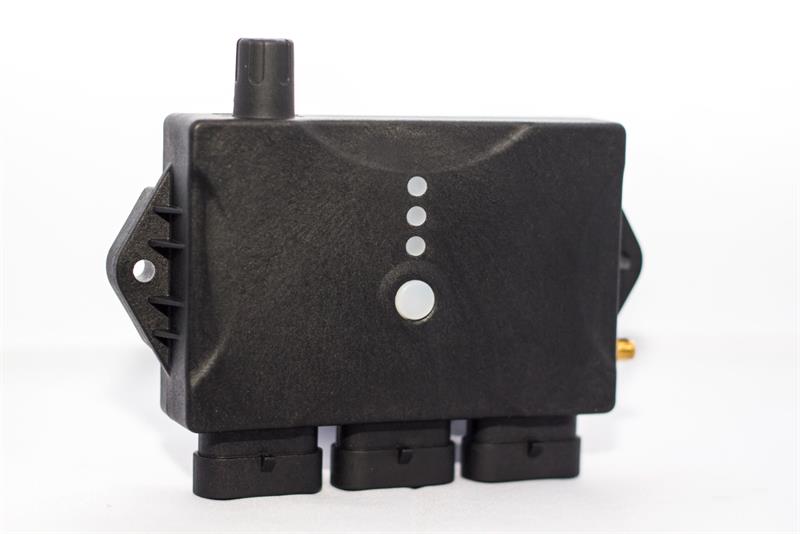Here, Peter Tillotson, business development manager of tyre pressure monitoring specialist, TyrePal, discusses how bus and coach drivers can reduce bus downtime and maintenance costs, while improving passenger safety without a system redesign.
The introduction of the 21st Century Routemaster was not without problems — the initial batch of batteries did not charge correctly. This left many vehicles to run solely on the diesel engine, which was not designed for such high power demand leading to increased emissions and operational difficulties.
The main selling point of the 21st Century Routemaster was that it was environmentally friendly. However, there are simpler and cheaper ways for bus and coach manufacturers to improve performance and safety.
A large amount of vehicles are still driven with under-inflated tyres, buses and coaches included. This can result in increased repair and breakdown cost, not to mention the high risk of a tyre blowout.
A tyre blowout can be caused by a combination of low pressure and increased temperature. It can create serious disruption for passengers as they usually have to wait for the arrival of a recovery and a relief vehicle before continuing with their journey. This is likely to result in lots of unhappy passengers, but it's not nearly as damaging as passengers being injured due to an accident that could have been prevented.
When a longer vehicle suffers a blowout, it is more likely to swerve across lanes, increasing the chances of a collision. This is why it is particularly important for bus and coach fleet managers to monitor tyre pressure consistently.
Tyre pressure monitoring systems (TPMS) help both drivers and depot managers keep track of tyre pressure. Products like TyrePal's driver alert system inform the driver when tyre pressure is falling due to a puncture and when tyre pressure is too low or temperature too high.
 Bus and coach fleets can rely on a remote monitoring system, such as TyrePal's TeleTPMS (left). Depot managers are able to see the location of all the vehicles in the fleet, with status indicated at a glance. The user can immediately identify any tyres that require attention and view the condition of the tyres of each vehicle individually.
Bus and coach fleets can rely on a remote monitoring system, such as TyrePal's TeleTPMS (left). Depot managers are able to see the location of all the vehicles in the fleet, with status indicated at a glance. The user can immediately identify any tyres that require attention and view the condition of the tyres of each vehicle individually.
Fleet owners can also benefit from reduced fuel consumption when using tyre pressure monitoring systems. If tyres are underinflated by 15psi, it can lead to a 6% increase in fuel consumption and cost £150 more each year on a fuel spend of £2,500.
The 21s century Routemaster proves that when vehicles don't operate as designed, they become inefficient. This principle also applies to tyres — ensuring they run at the correct pressure and temperature is the key to high performance, safety and impressive fuel consumption. Reliable tyre pressure monitoring systems guarantee tyres are always kept in good working condition so that buses and coaches around the UK get passengers to their destinations safely every day.


